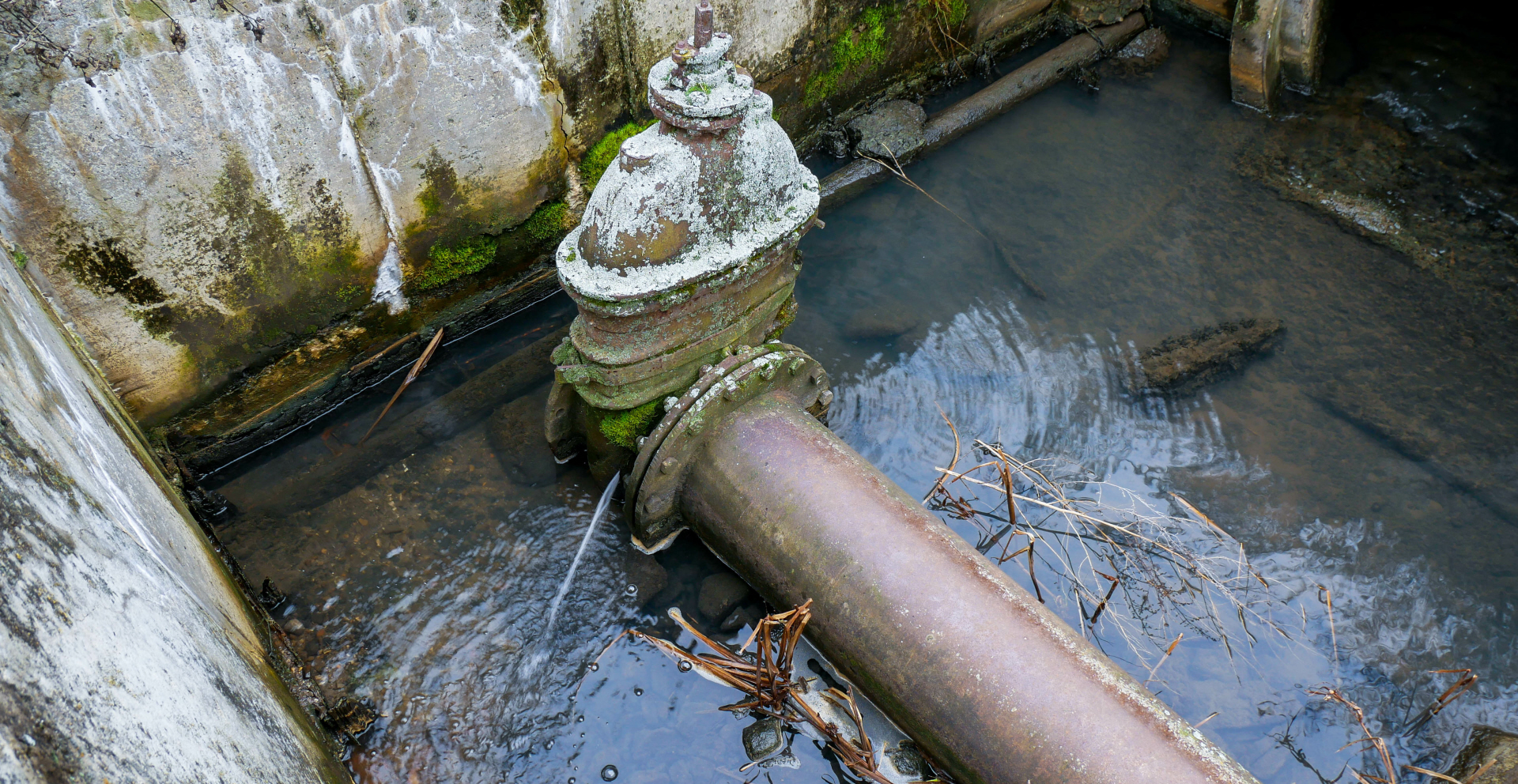Using Inverters To Protect Sewage Mains
In this article we review how the use of inverters can reduce the mechanical stresses on pipework leading to premature failures and bursts. Inverters control the speed of pumps and in these applications, centrifugal pumps, which allow the control of pressure. The pump affinity laws state that the pressure generated by a centrifugal pump is proportional to the square of the pump’s speed. The measurement of mains pressures using ‘high speed’ (high sampling rate) pressure loggers has recently aided the understanding of this issue.
Pressure Sources
There is naturally pressure in a pipe system due to the static head of the fluid. Pressure is also created from the pump’s speed and where this matches the system curve determines the operating pressure. The system curve is a function of static head and pipe friction.
There is a third source of pressure – pressure transients from step changes in the system. These changes are commonly the opening and closing of the NRV at pumping starts and stops. These transients are short term but can be significant in terms of magnitudes of pressure. These pressure pulses can ‘fatigue’ the pipework leading to failure and bursts.
Inverter Control Options
a) Transients
By judicious use of ramp up and ramp down times, the NRV’s opening and closing can be changed from a step action to a smooth, controlled one. In particular this can be important on stopping when the fluid can have a significant static head closing the NRV and the associated energy needed to dissipate.
b) Operating Pressure
This can be controlled by the operating speed of the pump. By using a PID control algorithm within the inverter and the sump level signal, we can sense when the system is not in ‘storm conditions’ and allow a reduced operating speed. This however needs to be tempered with the minimum pipe velocity required to keep the solids in suspension. This can be mitigated against however by a periodic full speed ‘purge’ on a regular basis programmed into the inverter.
Other Inverter Benefits
Energy Savings – around 30% of the energy used can be saved per m3 of liquid pumped. Please see https://en.wikipedia.org/wiki/Affinity_laws
Quieter Running – at lower speeds pump mechanical noise is significantly reduced.
Quieter Running – higher inverter switching frequency reduces electrical noise. Both of these points can be relevant with pumping stations are near dwellings.
Mechanically Smooth Starts – this reduces the mechanical stress on motors, couplings, V belts, gearboxes and pumps leading to longer life.
Electrically Smooth Starts – this reduces the inrush currents associated with DOL and Star-Delta starting, removing nuisance voltage dips and reducing the electrical stress on contactors in particular.
Unity Power Factor – this can reduce the electricity bills since inverters run at almost unity power factor. It also means we can simplify panels by removing redundant power factor correction capacitors.
Upgrading – Replacing older, obsolete forms of gentle starting e.g. tap changing transformers.
Full motor protection – e. g. overload, short circuit, earth leakage (plus many more) as standard.
Pump Cleaning – periodic removal of rag from impellors.
Programmable Torque / Speed Curve – identifies blocked pumps, broken V belts, impellors ‘fallen off’.
Multi Pump Control – The inverters can be linked by their Modbus connections and can be setup to fully control pump sets without external software or devices e.g. plcs, level controllers etc.
External Communication – interfaces with telemetry to give live process and status data allowing intelligent pumping control and reduce costly site visits.
Using Inverters to Protect Sewage Mains
IDS have extensive experience of working with and supporting the water industry. We pride ourselves on our problem solving approach and innovative use of inverter technology, like the Reactive Pump Controller and our work proving energy savings on Archimedes’ Screws. Call us on 0115 944 1036 or email [email protected] to start a discussion to see how we can support you.


